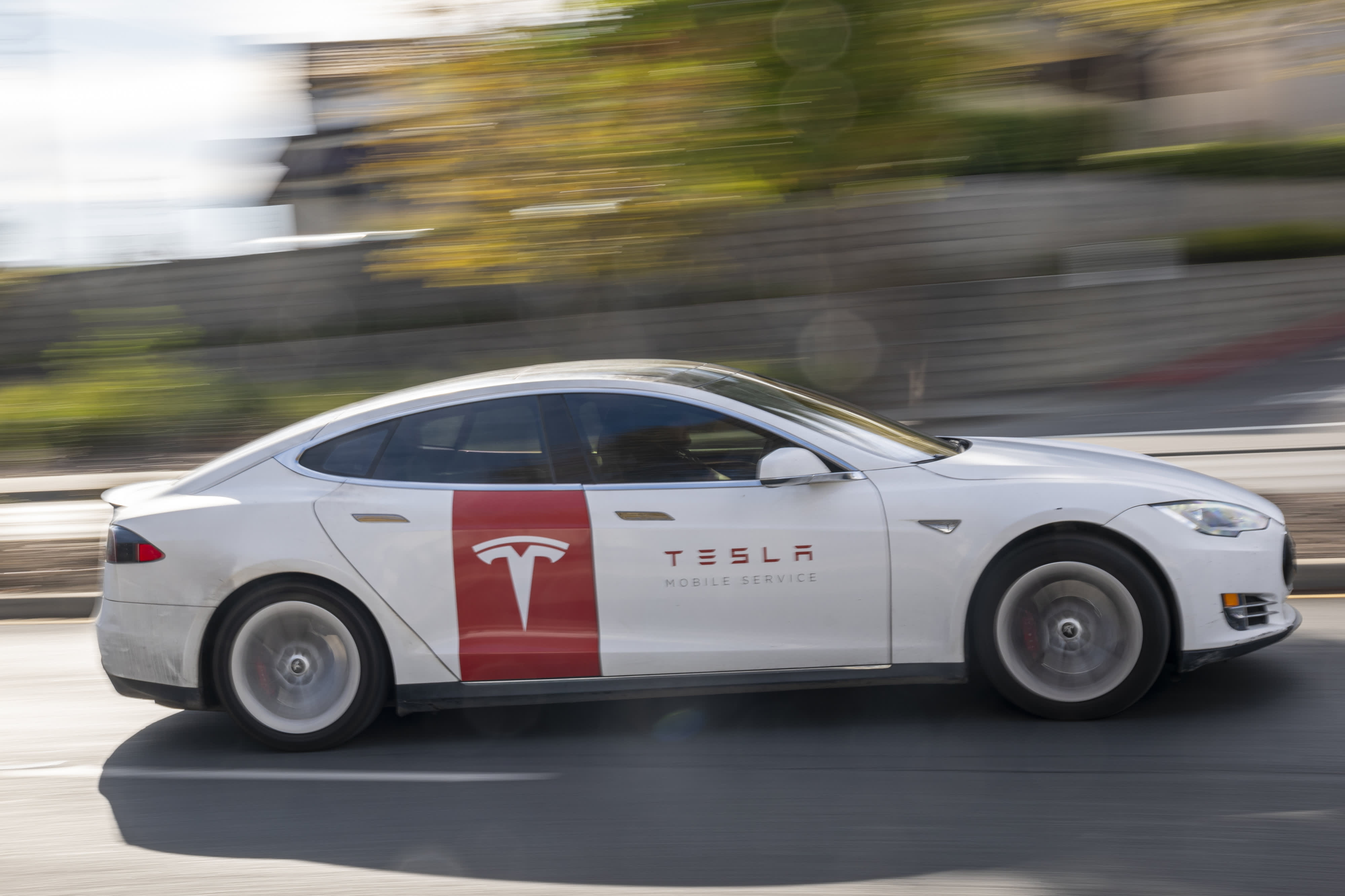Shares in electric vehicle maker Tesla climbed nearly 10% on Monday after Credit Suisse upgraded the stock to “outperform” and the broader market rebounded.
Tesla had previously declined almost 20% in January amid a sell-off that dragged the Nasdaq down.
Shares were especially under pressure after CEO Elon Musk said on the company’s most recent earnings call that Tesla would not deliver any new model vehicles to customers in 2022, including the Cyberbtruck, an experimental pickup.
Instead, Musk informed shareholders that Tesla plans to focus on scaling production at its old and new factories, and to dedicate resources to developing a humanoid robot and driverless vehicle tech. Musk has been promising to make driverless vehicles a reality since 2016, and has yet to deliver a “robotaxi” safe for hands free use by drivers.
Credit Suisse saw a buying opportunity, and has a price target of $1,025 on shares of Tesla now.
Analyst Dan Levy wrote in a note out on Monday, “Tesla has surprised to the upside on margins, in large part driven by cost reductions; we believe the strong margins are sustainable.” And he said, “We believe legacy OEMs are taking clear steps to transitioning to an EV world, yet we expect Tesla to maintain a lead for the foreseeable future.”
The note also said, “Up until now Tesla margins have largely been a function of auto hardware sales, with some modest benefits of software…specifically FSD (Full Self-Drive features). However, as Tesla releases more FSD features and unlocks more deferred revenue (which likely flows through at 100% contribution margin), Tesla should see incremental margin benefit.”
This weekend, Musk said on Twitter, “Tesla will support FSD licensing by other manufacturers,” but did not say when or whether any automakers had expressed interest.
Other electric vehicle makers also rebounded on Monday, with Rivian up over 12% and Lucid up around 7%. Legacy automakers with significant plans for battery electric vehicle production, Ford and GM, also saw shares rise each more than 3% by mid-day on Monday.
According to analysis by the International Energy Agency, there were about 6.7 million battery electric vehicles (BEVs) already on the roads around the world by the end of 2020, including 1.1 million in the US that year.
President Biden said last August that he wants half of all vehicles sold in the US to be electric by 2030, including hybrids and battery electric vehicles.
